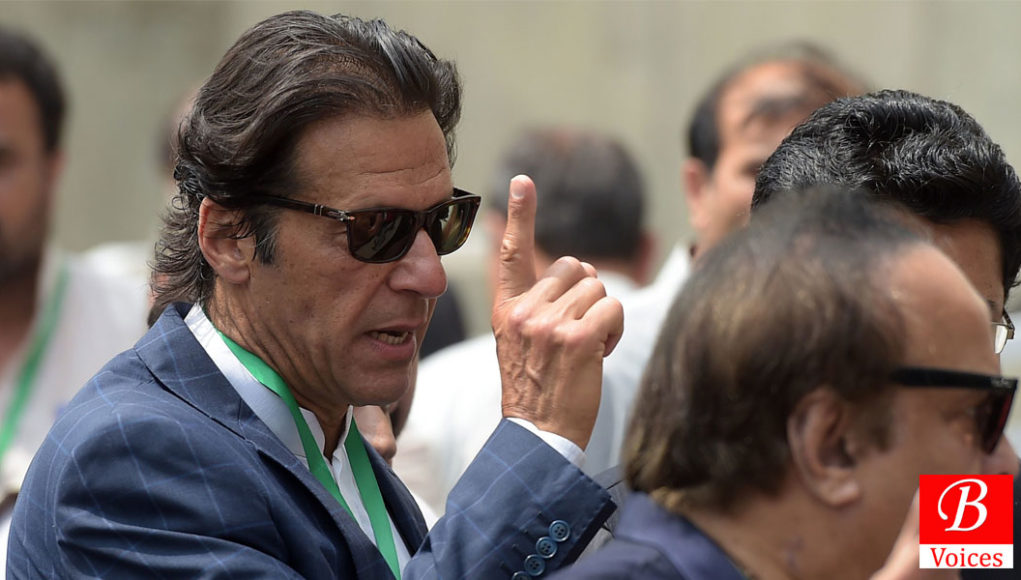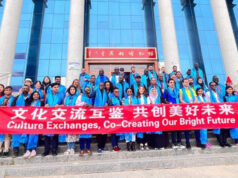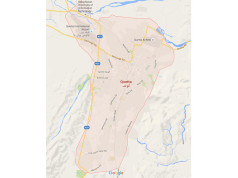 Muhammad Anwar Nasar
Muhammad Anwar Nasar
Imran Khan is not only arbitrary in making party policies but also reversing the provincial autonomy of Khyber Pakhtunkhwa to Islamabad. This notion of arbitrariness and reversing provincialism is fatal to democratic culture of Pakistan.
In Pakistani politics, generally, the actual taste of democracy is hardly found in the sphere of politics, political parties and government. The political narrative of the new world order works for the empowerment of more and more people. Democracy in other words is the will and say of people in the affairs of state and government.
The culture of democratic norms to be institutionalized comes from the democratic nature of party politics. If the political parties are owned by real political leaders then it would devolve the power to the common class and vice versa. Obviously, more hierarchical structure of the political party imparts more strength to its people. In response, the party gets more strengthened.
In Pakistani politics, with exception to few, the central leadership of the political parties fears to dissipate the central power down to the lower ebb of its organization. Such kind of culture is then institutionalized in the personality cults as they rise to higher ranks inside party. The same reflection is found when party comes to form government at central or provincial level.
Initially, I will try to highlight the arbitrariness of Imran Khan. The words, actions and activities of Imran Khan expose the authoritarian and dictatorial nature of his dealings. This trait can be emphatically found at his perpetration at party level and government level.
One, Justice (r) Wajihudin had been assigned the task to head the commission for a purpose to investigate the ‘irregularities’ held in intra-party election in 2013. Justice (r) Wajihudin pointed out the main reasons of irregularities. Consequently, this led to the genesis of difference with leadership. Instead of to oust the faults from party, PTI chairman, suspended Wajihudin’s party membership. Here, it is manifested that how Imran Khan showed his arbitrariness instead of cleansing party from Mafia.
Two, at various stages Imran Khan comes on the screen and announces a future plan but he changes it later. It shows that either his party lacks think tanks or he does not consult with them. Whatever the case is, there we found the elements of arbitrariness in his leadership.
Three, Imran Khan avoids his attention from separating the true leadership from mass scale by electoral process inside his party. To practically manifest this, he oversimplified the electoral process in the case of intra-party elections. He, simply, framed two panels i.e. ‘Insaaf panel’ and ‘Ehtisaab Panel’. In the ‘Insaaf panel’ Imran khan was chairman and all other popular leaders had been assigned the particular positions of Vice-chairman, General Secretary and so on. And the rival panel was comprised of comparatively less popular leaders. Ironically, voters were conditioned either to vote for ‘Insaaf panel’ or ‘Ehtisaab Panel’. Ehtisaab panel’s Naik Muhammad Khan ran against Imran Khan for chairmanship. So how could Ehtisaab Panel win which was amalgamation of unpopular political activists in comparison to Imran Khan, Shah Mehmud Qureshi, and Jahangir Tareen? Consequently, Imran Khan’s claim that ‘political party which has no democracy inside party could not bring democracy inside country’ is becoming paradoxical in the context of PTI.
The prospect of reversing the provincial autonomy to Islamabad shows the despotic nature of Imran Khan’s personality. Some of the solid foundations are here to label him for ‘not transferring the power to locals’ of that spectacular region.
Firstly, a couple of week earlier teachers of Khyber Pakhtunkhwa had staged a sit-in in front of Imran Khan’s home in Bani Gala and is still continued. Under the 18th amendment, the education had been transferred to provinces. Now it is Imran Khan’s responsibility to empower the provincial government rather than concentrating the power in him. This concentration of power in him would reverse the provincialism.
Secondly, the real power of Khyber Pakhtunkhwa rests in the hands of handful political figures. These political leaders are not the original inhabitants of Khyber Pakhtunkhwa i.e. Jahangir Tareen and Asad Umar. They have been imposed on the provincial government in the prospect of monitoring and planning. But in reality they have violated the norm of provincialism. How could the inhabitant of Punjab become more aware than the locals of Khyber Pakhtunkhwa? Both the ‘legal team’ for the cooperation of provincial government and ‘monitoring team’ for the scrutiny of government must be comprised of local people.
Thirdly, the nationalist leadership of Khyber Pakhtunkhwa struggled for decades for the acquisition of provincial autonomy. In this run, they were entitled with different titles like ‘traitor’ and so on. At last they were succeeded in the previous government under the 18th amendment. Now Imran Khan is again reversing the 18th amendment by transferring the power to Islamabad. This is not only something apolitical but also unconstitutional.
Fourthly, during PTI’s sit-in held in D-Chowk Islamabad, most of the people I had met there were either Peshawerites or from twin cities. So Imran Khan was using Khyber Pakhtunkhwa’s people and resources for the acquisition of some undemocratic aspiration to derail government.
In a nut shell, Imran khan must not perform any kind of thing that would be proving a kind of stigma on his political career. Moreover, being like a true democrat he should quit, once for all, the nature of arbitrariness and promote provincialism for it is a trust assigned to him by the people of Khyber Pakhtunkhwa through their ballot.
Disclaimer: Views expressed in this article are those of the author and Balochistan Voices not necessarily agrees with them.
Share your comments!








